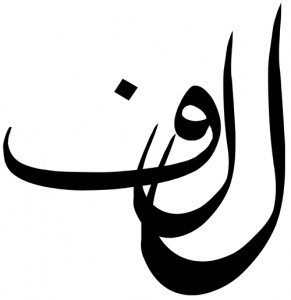By Jon Boone
The Guardian, Feb. 1, 2013

Lahore, the historic capital of Punjab in Pakistan, has become the latest south Asian city to succumb to a subcontinent-wide craze for literary festivals.
The latest addition to the booming book festival scene has attracted some of Pakistani literature’s biggest names, including Mohsin Hamid and Mohammed Hanif. Organizers of the two-day event hope to emulate some of the extraordinary success enjoyed by the recent Jaipur literature festival, a five-day extravaganza that attracted almost 200,000 visitors.
The Jaipur festival was established in 2005, and there are now 30 literary festivals in India, two in Bangladesh, one in Nepal and two in Pakistan, where a Karachi book festival was launched in 2010. The inaugural international Irrawadddy literary festival was recently launched in Burma, a country only just emerging from military rule.
Organizers of the Lahore event later this month said it was high time the city of Mughal ruins, once famous for its poetry and music, got in on the act.
“We want to reclaim the historic cultural tradition of Lahore,” said one of the organizers of the Lahore festival, who fears literature is losing out on university campuses to business studies and engineering. “Twenty years ago there were tons of bookshops in Lahore, now there is just a handful and they mostly sell textbooks.”
Publishers say the popularity of book festivals in India reflects the voracious reading habits of the country’s growing and increasingly literate middle-classes.
Although Pakistan produces a vast amount of poetry, novels and biographies published in Urdu, demand for English-medium books is far lower than in neighboring India. Many of the country’s literary stars are published by Indian or international houses.
But Aysha Raja, a bookshop owner who has also invested in a new publishing company, believes the demand for English is growing. “The big Indian publishers have recognized there is market here that needs to be exploited,” she said, highlighting the efforts of the Indian subsidiaries of Penguin and Random House in Pakistan. “But you have to make the market here grow by being creative, organizing things like book tours and festivals.”
In countries such as Pakistan and Burma, the inauguration of new festivals has political significance. Aung San Suu Kyi, the democracy campaigner recently freed from house arrest, is patron of the Irrawaddy festival.
Although Pakistan has been free from military rule since 2008 and is about to host its third book festival in Karachi, the entrance of Lahore on to the literary scene is seen by some as a significant moment.
“I see this as a first step in trying to revive the literary life in Pakistan,” said Shehryar Fazli, author of the novel Invitation, who claims culture and the arts were seriously damaged during the military rule of Gen. Zia-ul-Haq.
“It used to be quite strong after independence but it crumbled with the rest of the arts in the 1980s. The heavy Islamic censorship of the Zia era set us back a generation.”
Others think the cross-border exchange of authors can only help spluttering attempts to improve relations between Pakistan and India.
Efforts by both governments to loosen visa arrangements and liberalize trade hit trouble early last month amid a renewed outbreak of fighting between Indian and Pakistani troops along a disputed section of border.
Despite the acrimonious political climate fuelled by an outraged Indian media, some Pakistanis, including many authors, managed to attend the Jaipur event.
“It makes a huge difference,” said Faiza Khan, a Pakistani working for an Indian publisher in Delhi. “Naturally, meeting individuals takes one away from the rather pitiful stereotype of Pakistanis all being one appalling, homogenous whole.”
Also attending the latest addition to the south Asian literary season will be William Dalrymple, the British writer who first laid on a book reading in Diggi Palace, Jaipur, in 2005 to which “only 14 people turned up, 10 of whom were Japanese tourists who had taken a wrong turn.”
He was inspired by the Hay festival in Wales and other big international literary events where he would often see famous south Asian authors who never had a public platform in India.
“I saw more south Asian writers in the early 1990s in London, Sydney and New York than India,” he said. “And it’s great for international writers too because they can get away from their damp bedsits each January and speak to pretty girls under the awnings in Jaipur, surrounded by elephants and palaces.”
See the original article here.


